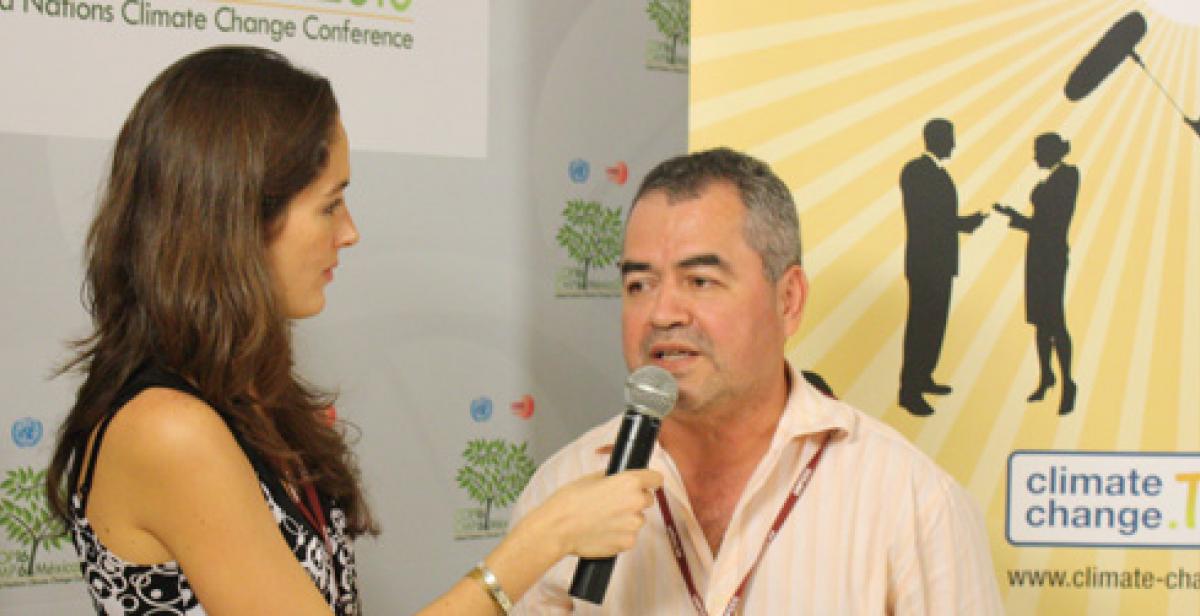Maggie von Vogt caught up with some civil society leaders at the Cancun talks to ask what their take on the UN process has been so far.
Dynamic people and issues
“All of this seems really dynamic to me. I am fascinated by all of the social movements who are struggling for their own interests, for example Jubilee South that has this campaign against World Bank and International Financial Institutions to be kept from the climate funding, also the indigenous people’s mobilizations, because climate change affects them directly. So, it’s important that those people be really directly involved. So, right now I have my eyes wide open to all of these issues that are related to climate change.”
Rosa-Mae Whittier
Trinidad and Tobago, observer and participant from the Caribbean People’s Assembly, the National Federation of Labour Unions and NGOs, and the Oil Workers Union
Democratic accountability in funding for climate change
“Africa is the continent most impacted by climate change, and it needs help to adapt. We have seen the World Bank interested in these processes. This is an institution that has never been democratic, so we are suspicious of them… So now the question is, should we allow the World Bank to administer funds? We have to look at who administers the funds, and it should be democratic. Is the World Bank democratic? Never.
The World Bank is controlled by countries like the United States, and the United States has bigger powers to say “you want this, well you have to do that.” As civil society, we have done some assessment. This funding comes as loans, so it is using the misery of poor people to make profit, which is unethical and unacceptable.
We, in social movements and people in the South are going to research this. We want any funding for climate change to come through unilateral processes, to make the administration of these funds democratic and efficient.”
Mithika Mwenda
Pan-African Climate Justice Network
Lots of work to be done
“A lot of what we are doing is identifying who has what position: every country, every working group, and every negotiation group is envisioning and putting forward what it wants to achieve.
“Mexico has played an important role in trying to save the talks, and this has been recognised by diverse delegations. As we know, at Copenhagen there was a setback, consensus was not respected, and this has complicated the energy and dynamic that has been coming along since Bali.
“Because of this, the expectation levels from this conference are minimal. This means that it is hoped that this conference leaves people with a good taste in their mouth, and that the fundamental points such as reduction of emissions (levels, mechanisms of supervision and transparency) will not be dealt with in this conference. In the next conference in South Africa, the idea is that this is a fundamental subject to work on there.
The other themes where you could say there is some good spirit is the second phase of the Kyoto Protocol. Although there is news that Australia and Japan will not back the second phase of Kyoto, recently we have heard that Japan withdrew this position of not supporting the second phase of negotiations. So we can say that this is an achievement and that it is possible to approve a second period.
Regarding technology transfer, the most important that can be rescued is the creation of an international committee that will be working on this theme.
Regarding adaptation, the work around REDD+, it appears that we are going to achieve an agreement.
However, the documents are still being worked on, and as they say in these conferences “cleaning itself up”, meaning the subject is being worked on and it is expected to have an agreement to work on issues of deforestation.
Regarding financing, as you may remember, in Copenhagen, 28 million dollars were offered up to work on climate change. To date, these resources have not been made available. In this conference, it is hoped that the mechanisms can be developed to channel these resources, but many countries and NGOs are proposing that these resources not be channel by means of the market.
For now, this is what we can share, brothers and sisters and friends."
René Ramos
El Salvador, representative of civil society from the Mesoamerican Climate Justice Campaign
--
Photo: René Ramos is interviewed in Cancun. Credit: Maggie von Vogt/Progressio



